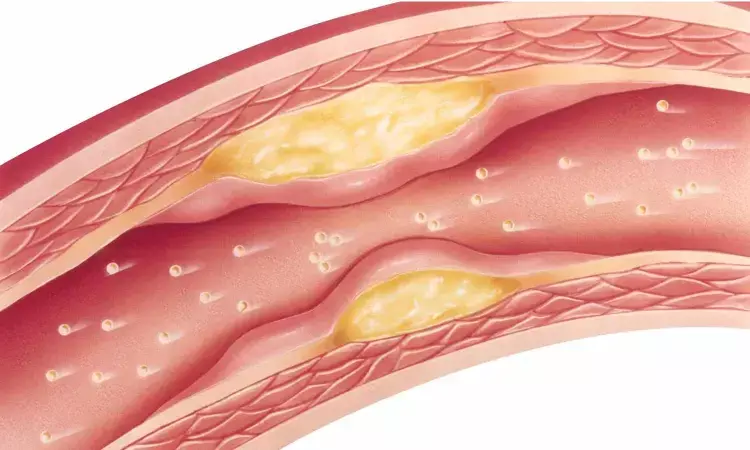- Home
- Medical news & Guidelines
- Anesthesiology
- Cardiology and CTVS
- Critical Care
- Dentistry
- Dermatology
- Diabetes and Endocrinology
- ENT
- Gastroenterology
- Medicine
- Nephrology
- Neurology
- Obstretics-Gynaecology
- Oncology
- Ophthalmology
- Orthopaedics
- Pediatrics-Neonatology
- Psychiatry
- Pulmonology
- Radiology
- Surgery
- Urology
- Laboratory Medicine
- Diet
- Nursing
- Paramedical
- Physiotherapy
- Health news
- Fact Check
- Bone Health Fact Check
- Brain Health Fact Check
- Cancer Related Fact Check
- Child Care Fact Check
- Dental and oral health fact check
- Diabetes and metabolic health fact check
- Diet and Nutrition Fact Check
- Eye and ENT Care Fact Check
- Fitness fact check
- Gut health fact check
- Heart health fact check
- Kidney health fact check
- Medical education fact check
- Men's health fact check
- Respiratory fact check
- Skin and hair care fact check
- Vaccine and Immunization fact check
- Women's health fact check
- AYUSH
- State News
- Andaman and Nicobar Islands
- Andhra Pradesh
- Arunachal Pradesh
- Assam
- Bihar
- Chandigarh
- Chattisgarh
- Dadra and Nagar Haveli
- Daman and Diu
- Delhi
- Goa
- Gujarat
- Haryana
- Himachal Pradesh
- Jammu & Kashmir
- Jharkhand
- Karnataka
- Kerala
- Ladakh
- Lakshadweep
- Madhya Pradesh
- Maharashtra
- Manipur
- Meghalaya
- Mizoram
- Nagaland
- Odisha
- Puducherry
- Punjab
- Rajasthan
- Sikkim
- Tamil Nadu
- Telangana
- Tripura
- Uttar Pradesh
- Uttrakhand
- West Bengal
- Medical Education
- Industry
CAC score may help regulate statins in patients with borderline ASCVD risk

USA: CAC score should be used in patients with borderline or intermediate ASCVD risk to assist in the decision of taking or withdrawing statin use for primary prevention of ASCVD, suggests a recent study in the journal Mayo Clinic Proceedings.
The decision about whether to recommend a statin for the primary prevention of atherosclerotic cardiovascular disease (ASCVD) although is clear in patients with high ASCVD score, but whether to allot statins or not in patients with borderline or intermediate-risk has been a conundrum. Patient-specific treatment decisions are needed to provide maximal benefit and avoid unnecessary treatment.
Guideline-based lipid management proposes that coronary artery calcium (CAC) scoring is reasonable to implement in patients with a 10-year risk of 5.0% to 19.9% (borderline to intermediate risk) by using the pooled cohort equations when the decision about whether to initiate statin therapy is uncertain
Carl E. Orringer and Kevin C. Maki from the USA reported data from both observational studies and a large primary prevention randomized controlled trial that support the position that this decision is, in fact, uncertain in about half of such patients because of risk misclassification.
Key findings of the study include:
- Such misclassification can be largely avoided by more widespread implementation of coronary calcium scoring, which helps to identify those with coronary artery calcium scores of 0, a finding associated with a less than 5.0% 10-year probability of an ASCVD event.
- Deferral of statin therapy in such patients, in the absence of smoking, diabetes, or a family history of premature ASCVD, provides more individualized and appropriate care and avoids the expense and potential adverse effects of statin therapy in those with low potential for absolute risk reduction.
- A rationale is also provided for the importance of coronary artery calcium scoring in women 50 years and older, possibly in place of 1 screening mammogram in women at least 55 years of age to avoid incremental radiation exposure, on the basis of the substantially higher lifetime risk of morbidity and mortality from ASCVD than from breast cancer.
"In patients with borderline or intermediate ASCVD risk, coronary artery calcium scoring should be used, whenever possible, as an aid to rational statin allocation for the primary prevention of ASCVD," concluded the authors.
The study, "HOPE for Rational Statin Allocation for Primary Prevention: A Coronary Artery Calcium Picture Is Worth 1000 Words," is published in the journal Mayo Clinic Proceedings.
Dr Kamal Kant Kohli-MBBS, DTCD- a chest specialist with more than 30 years of practice and a flair for writing clinical articles, Dr Kamal Kant Kohli joined Medical Dialogues as a Chief Editor of Medical News. Besides writing articles, as an editor, he proofreads and verifies all the medical content published on Medical Dialogues including those coming from journals, studies,medical conferences,guidelines etc. Email: drkohli@medicaldialogues.in. Contact no. 011-43720751


